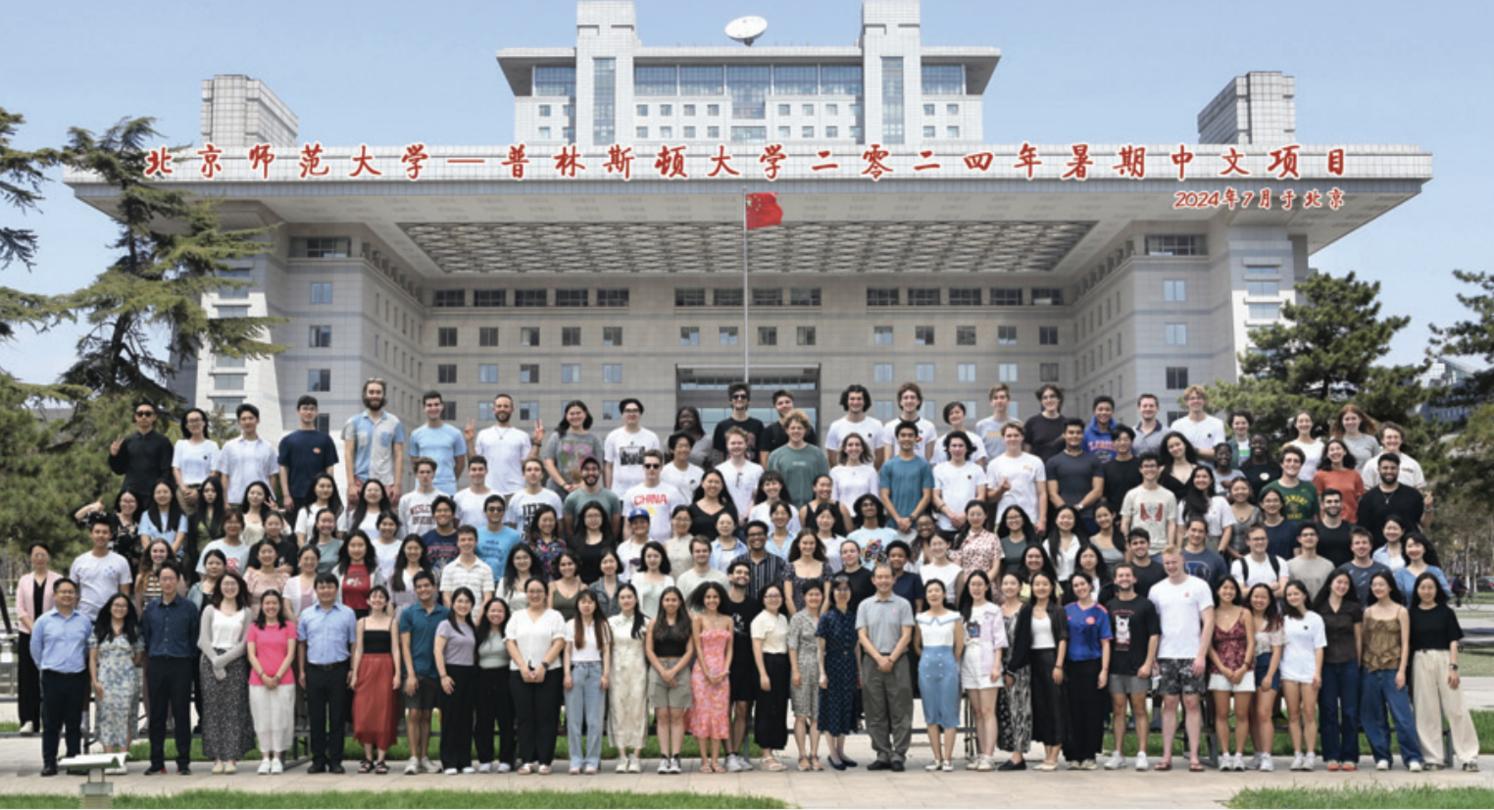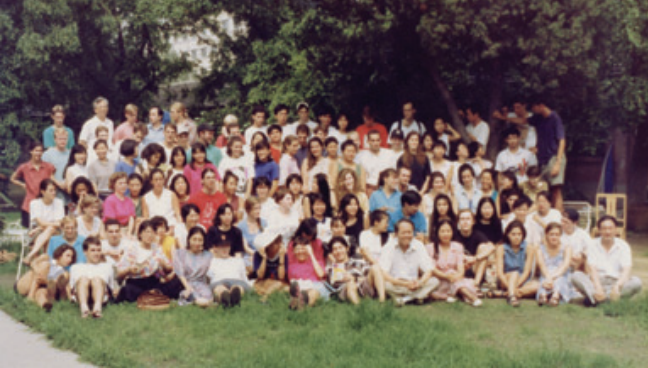Celebrating 30 Years of Princeton in Beijing

In summer 2024, the Princeton in Beijing (PiB) summer language program returned to in-person instruction in China after a hiatus due to COVID-19, marking its 30th anniversary. Since its inception in 1993, PiB has provided over 4,500 students from Princeton and around the world the opportunity to master Mandarin in an immersive learning environment. Additionally, the program has trained nearly 1,700 Chinese language teachers, utilizing techniques pioneered by co-founder Chih-p’ing Chou, professor emeritus of East Asian studies.
Amid ongoing U.S.-China geopolitical tensions, PiB offers students a unique opportunity to engage with China directly, gaining firsthand insights into the country's culture and complexities firsthand. "These programs help students develop practical language skills and cultural awareness — qualities that are vital for becoming responsible and informed global citizens," said Jing Wang, director of PiB and the Chinese Language Program on campus.
Hosted at Beijing Normal University, one of China’s premier institutions, PiB employs a total immersion approach. Over eight weeks, students undergo intensive coursework focused on pronunciation and grammar accuracy, essential components for true fluency. Students pledge to speak only Mandarin throughout the program, within and outside of the classroom.
 The inagural cohort of Princeton in Beijing in 1993
The inagural cohort of Princeton in Beijing in 1993
For Jessica Wei ’27, participation in PiB was motivated by a personal goal of fluently communicating with her Chinese relatives. "The improvement in my Mandarin language skills was beyond anything I could have had elsewhere,” she said. “I was able to tell stories about my time in Beijing and describe events in detail to my family without stuttering.”
Students also engage in cultural activities — like calligraphy, painting, and tea-tasting sessions — and participate in excursions to historical and cultural sites such as Jingshan Park and, most notably, the Great Wall of China. “To stand on the very spot that contained thousands of years of history and look out into a landscape with a breathtaking view was truly indescribable,” Wei said.
Dean Minello ’27’s most memorable experience happened unexpectedly, with his classmates in one of Beijing’s famed hutong restaurants. “We stayed for three hours, making friends with the other customers and the restaurant owner, learning about Chinese eating and drinking customs while practicing Mandarin.”
Participating in the program reinforced the importance of fostering open dialogue and collaboration between the U.S. and China, said Minello. “The more we embrace the possibility of openness in China, the more likely we are to find common ground on the global stage.”
Celebrating the past, looking to the future
On July 14, PiB celebrated its anniversary milestone at Beijing Normal University. Instructors, alumni, and representatives from Princeton and other American and Chinese institutions gathered for a day of commemorative speeches reflecting on the achievements of the program.
Chou was recognized for creating a superior model for Chinese-language instruction in the U.S. and fostering educational collaboration. He emphasized that the program’s driving force was twofold: to enable students to achieve rapid improvement in their Chinese proficiency and, more importantly, to “develop a respect and affection for China, the Chinese people, the Chinese language and writing system, and Chinese history and culture.”
Rory Truex ’07 was a member of the program’s cohort in 2004. Today, he is an associate professor of politics and international affairs at Princeton and a leading expert on Chinese politics. “It turned out to be a formative summer in my life, leading me down the path of teaching and writing about China,” he said. “Programs like Princeton in Beijing cultivate the next generation of China experts and allow our students to see China with their own eyes.”
2024 Marked the Return of Other Programs to China
In the PIIRS Global Seminar, “Contemporary Japan and China,” led by James Raymo, professor of sociology and the Henry Wendt III ’55 Professor of East Asian Studies, and Yu Xie, the Bert G. Kerstetter ’66 University Professor of Sociology, students split time between the University of Tokyo and Peking University in Beijing. They had the opportunity to immerse themselves in contemporary Japanese and Chinese societies.
Students explored topics such as demography in Japan and East Asia, Japan-China relations, politics, and social inequality while considering historical, cultural, political, and economic context.
In the Center for Health and Wellbeing’s Global Health Exchange Program with Zhejiang University, facilitated by Yibin Kang, a Warner-Lambert/Parke-Davis Professor of Molecular Biology, four Princeton students traveled to Zhejiang University in the city of Hangzhou. In exchange, four Zhejiang University students visited the Princeton campus.
The Princeton undergraduates worked on research projects focusing on global health concerns such as cancer, infectious diseases, and the prevention and treatment of obesity and related chronic diseases. The visiting Zhejiang students participated in the Summer Undergraduate Research Program, co-hosted by Princeton’s Department of Molecular Biology and the Lewis Sigler Institute for Integrative Genomics.
